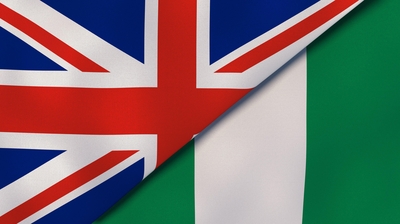The FCDO must develop and deliver an integrated delivery plan for the next 5-10 years that sets out realistic ambitions for the UK’s future partnership with Nigeria – one of the most important countries for our future, say MPs on the foreign affairs committee.
In a new report, Lagos calling: Nigeria and the Integrated Review, the committee states that projected growth, increasing economic capabilities and cultural weight at home and in the UK, marks Nigeria out as a future global partner for the UK.
Historic links between the two countries present challenges as well as opportunities. The UK government has work to do to set out its priorities and approach to the citizens, NGOs, companies, and governments of the UK and Nigeria. However, this is necessary to demonstrate the importance the UK places on its relationship with Nigeria, to maximise the effective delivery of programmes and aid the scrutiny of policy.
As the UK looks to sustain its strategic advantage in science and technology, Nigeria is likely to be an increasingly important partner. Developing approaches to skills building in IT, legal systems, the Nigerian Civil Service will help both. Part of creating an enabling environment for the Nigerian tech sector involves setting out a clear and coherent approach – including how it will be funded – to the UK’s partnership with Nigeria on research and training for science and technology.
The UK and Nigerian governments share a determination to increase resilience in the face of climate change and habitat loss. The committee calls on the FCDO to champion Nigerian-led international climate initiatives with broad holistic vision, such as the Great Green Wall, contributing where the UK can add value.
Multiple internal security situations in Nigeria present a growing threat to Nigeria – but they also matter to the UK. Hand in hand with targeted overseas development investment to tackle the underlying causes of conflict, the committee recommends continued, highly focused, support to the Nigerian military whilst maintaining the highest standards of human rights.
Nigeria has a growing, vibrant and engaged community in the UK, forming one of Britain’s largest diaspora groups. The committee recommends that the FCDO trials different initiatives to involve diaspora groups in diplomacy, from engagement platforms for peacebuilding in the North East of Nigeria to support for small and medium sized enterprises and the creative arts space. As the government looks to help define the international global order of the future, there should be a renewed focus on aspects of Nigerian culture that represent shared values.
The chair of the foreign affairs committee, Tom Tugendhat MP, said: “Nigeria is at the forefront of change in Africa. Its thriving film and music scene, tech innovation and multiple opportunities for investment, there is much to admire and value. The enthusiasm of the diaspora here in the UK is infectious and remains untapped.
“Nigeria faces challenges too. Security is a concern, along with the mass movement of people related to religious tensions and food security, the task of tackling environmental issues faces few more seriously than Nigeria. Its young population offers the country and the world so much, we all need to invest in their potential.
“Today, we call on the FCDO to sharpen its focus and recognise the importance of Nigeria to the UK, not just in the region but as a global partner to build a safe and prosperous future. By bringing together the instruments of diplomacy, trade and aid, there is much to benefit all of us. In a new era of global politics, the UK must look across the world for partnerships – in today’s report, we urge the FCDO to recognise Nigeria for the global partner it could be.”
The government’s Integrated Review identified four priority areas as part of its Spending Review commitments. Nigeria is named in the Review and today’s report assesses opportunities identified against each one: sustaining strategic advantage in science and technology; strengthening security at home and abroad; building resilience at home and abroad and shaping the international global order of the future.












